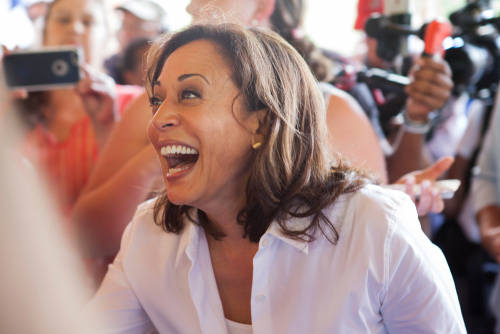
In the corridors of power in Washington, D.C., a new narrative is emerging that paints a rather unflattering picture of Vice President Kamala Harris. A recent biography has sparked conversations about her standing within the current administration, suggesting that she is not only marginalized but also viewed with derision by some of her peers.
The book, titled “Amateur Hour,” authored by a seasoned political journalist, delves into the dynamics between President Joe Biden and his vice president. It reveals a startling disconnect, with claims that the first family and key aides have intentionally kept Harris at arm’s length from major decisions. This alleged sidelining raises questions about the unity and internal coherence of the administration.
New Book Claims Members of Joe Biden’s Team See Vice President Kamala Harris as a ‘Joke’ and Shut Her Out of Meetings https://t.co/1CvoTInWGx
— Sean Hannity 🇺🇸 (@seanhannity) January 5, 2024
According to the biography, the vice president, who was once considered the heir apparent to President Biden, has been so ineffective in her role that she is now seen as a liability rather than an asset. The book goes on to describe how the president and first lady have not extended the usual courtesies one would expect, such as hosting a family dinner for Harris and her husband, Doug Emhoff. Even more telling is the claim that the president has backed out of his promise to have weekly lunches with his second-in-command.
The situation within the White House appears to be one of tension and dissatisfaction. Top aides, including the press secretary, reportedly find Harris’s office management style so abrasive that they opted for less significant roles within the administration rather than work directly under her. This speaks volumes about the atmosphere and the level of respect—or lack thereof—that the vice president commands among her staff.
Charlamagne tha God regrets supporting Kamala Harris and Joe Biden : 'Learned my lesson https://t.co/ao6nmRrMgC pic.twitter.com/bRvDPNjplX
— 1776 (@TheWakeninq) January 3, 2024
The implications of this alleged internal view of the vice president are far-reaching. As the person next in line for the presidency, Harris’s perceived inadequacy poses a dilemma for the Democratic Party. Should President Biden be unable to fulfill his duties for any reason, the party would face a conundrum over Harris’s potential ascension.
The book’s revelations also cast doubt on public statements from the White House regarding Harris’s responsibilities. While officially she is tasked with handling critical issues such as border control, the narrative suggests that her involvement in these matters is superficial at best.
This discrepancy between public perception and behind-the-scenes reality could have significant repercussions for the administration’s credibility.
As the administration continues to navigate complex domestic and international challenges, the role of the vice president remains under scrutiny. If the claims presented in the biography hold true, it may indicate a profound disconnect within the highest echelons of government—a situation that could undermine the administration’s efforts and the Democratic Party’s future prospects.










